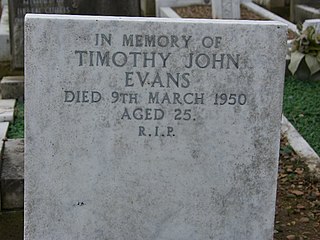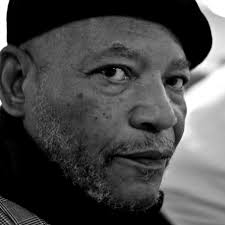Innocence Project, Inc. is a 501(c)(3) nonprofit legal organization that is committed to exonerating individuals who have been wrongly convicted, through the use of DNA testing and working to reform the criminal justice system to prevent future injustice. The group cites various studies estimating that in the United States between 1% and 10% of all prisoners are innocent. The Innocence Project was founded in 1992 by Barry Scheck and Peter Neufeld who gained national attention in the mid-1990s as part of the "Dream Team" of lawyers who formed part of the defense in the O. J. Simpson murder case.

A miscarriage of justice occurs when a grossly unfair outcome occurs in a criminal or civil proceeding, such as the conviction and punishment of a person for a crime they did not commit. Miscarriages are also known as wrongful convictions. Innocent people have sometimes ended up in prison for years before their conviction has eventually been overturned. They may be exonerated if new evidence comes to light or it is determined that the police or prosecutor committed some kind of misconduct at the original trial. In some jurisdictions this leads to the payment of compensation.

Juan Roberto Melendez-Colon is a public speaker and human rights activist who was wrongly convicted of murder and spent over 17 years on death row. He was released from prison on January 3, 2002, making him the 99th death row inmate in the United States to be exonerated and released from prison since 1973.
Anthony Porter was a Chicago resident known for having been exonerated in 1999 of the murder in 1982 of two teenagers on the South Side of the city. He was convicted and sentenced to death in 1983, and served 17 years on death row. He was exonerated following introduction of new evidence by Northwestern University professors and students from the Medill School of Journalism as part of their investigation for the school's Innocence Project. Porter's appeals had been repeatedly rejected, including by the US Supreme Court, and he was once 50 hours away from execution.
Wrongful execution is a miscarriage of justice occurring when an innocent person is killed by capital punishment. Cases of wrongful execution are cited as an argument by opponents of capital punishment, while proponents say that the argument of innocence concerns the credibility of the justice system as a whole and does not solely undermine the use of the death penalty.

Jesse Joseph Tafero was convicted of murder and executed via electric chair in the U.S. state of Florida for the murders of 39-year-old Florida Highway Patrol officer Phillip A. Black and 39-year-old Ontario Provincial Police Corporal Donald Irwin, a visiting Canadian constable and friend of Black. The officers were killed during a traffic stop where Tafero, his wife Sunny Jacobs and their children were passengers. Tafero's execution was botched; his head burst into flames during the execution by electric chair. After Tafero's execution, the driver, Walter Rhodes, confessed to shooting the officers, but later retracted his testimony.

The Innocent Man: Murder and Injustice in a Small Town is a 2006 true crime book by John Grisham, his only nonfiction title as of 2020. The book tells the story of Ronald 'Ron' Keith Williamson of Ada, Oklahoma, a former minor league baseball player who was wrongly convicted in 1988 of the rape and murder of Debra Sue Carter in Ada and was sentenced to death. After serving 11 years on death row, he was exonerated by DNA evidence and other material introduced by the Innocence Project and was released in 1999.
Shareef Cousin is an African-American man from New Orleans who was convicted of the first-degree murder of Michael Gerardi in 1996 and sentenced to death as a juvenile in Louisiana. At age 17, he became the youngest condemned convict to be put on death row in Louisiana, and one of the youngest in the United States.
This is a list of notable overturned convictions in the United States.
Joseph H. Burrows was wrongfully convicted of the murder of farmer William E. Dulan at his home in Iroquois County, Illinois, in 1988. After his conviction and sentence to death in 1989, Burrows was held for nearly five years on death row.
Rolando Cruz is an American man known for having been wrongfully convicted and sentenced to death, along with co-defendant Alejandro Hernandez, for the 1983 kidnapping, rape, and murder of 10-year-old Jeanine Nicarico in DuPage County, Illinois. The police had no substantive physical evidence linking the two men to the crime. Their first trial was jointly in 1987, and their statements were used against each other and a third defendant.
Earl Washington Jr. is a former Virginia death-row inmate, who was fully exonerated of murder charges against him in 2000. He had been wrongfully convicted and sentenced to death in 1984 for the 1982 rape and murder of Rebecca Lyn Williams in Culpeper, Virginia. Washington has an IQ estimated at 69, which classifies him as intellectually disabled. He was coerced into confessing to the crime when arrested on an unrelated charge a year later. He narrowly escaped being executed in 1985 and 1994.

Delbert Lee Tibbs was an American man who was wrongfully convicted of murder and rape in 1974 in Florida and sentenced to death. Later exonerated, Tibbs became a writer and anti-death penalty activist.
Willie Jerome "Fly" Manning is on death row at Mississippi State Penitentiary, USA, with two death sentences for a conviction of double murder. He was previously also convicted and sentenced to death for an unrelated double murder, but the State Supreme Court overturned this verdict and ordered a new trial. The charges against him for the Jimmerson-Jordan murders were then dropped, and the Death Penalty Information Center listed him as a 2015 death row exoneree for this case.
The Illinois Innocence Project, a member of the national Innocence Project network, is a non-profit legal organization that works to exonerate wrongfully convicted people and reform the criminal justice system to prevent future injustice.

The California Innocence Project is a non-profit based at California Western School of Law in San Diego, California, United States, which provides pro bono legal services to individuals who maintain their factual innocence of crime(s) for which they have been convicted. It is an independent chapter of the Innocence Project. Its mission is to exonerate wrongly convicted inmates through the use of DNA and other evidences.

Investigating Innocence is a nonprofit wrongful conviction advocacy organization that provides criminal defense investigations for inmates in the United States. Investigating Innocence was founded in 2013 by private investigator Bill Clutter to assist nationwide Innocence Project groups in investigating innocence claims. "Once we have a case that meets our criteria, we'll put private investigators to work on it. A lot of these cases need investigators," said Kelly Thompson, executive director of Investigating Innocence. Prior to his work on Investigating Innocence, Clutter was one of the founders of the Illinois Innocence Project. Investigating Innocence also has a board composed of exonerees that reviews incoming cases.
The Ford Heights Four were formerly imprisoned convicts, who were falsely accused and convicted of the double murder of Lawrence Lionberg and Carol Schmal in Ford Heights, Illinois, and later exonerated. Jimerson and Williams were sentenced to death, Adams to 75 years in prison and Rainge to life. Following the murder in 1978, the four spent almost two decades in prison before being released in 1996. This miscarriage of justice was due to false forensic testimony, coercion of a prosecution witness, perjury by another witness who had an incentive to lie, and prosecution and police misconduct. The DNA evidence uncovered in the investigation to clear their names eventually led to the arrest and conviction of the real killers.

Bill Clutter is an American private investigator, wrongful conviction advocate, and author. He is the co-founder of the Illinois Innocence Project and founder of the national wrongful conviction organization Investigating Innocence. His work on the Donaldson v. Central Illinois Public Service Company case led him to write the book Coal Tar: How Corrupt Politics and Corporate Greed Are Killing America's Children, which is the story of an epidemic of neuroblastoma in Taylorville, IL caused by exposure to coal tar.






